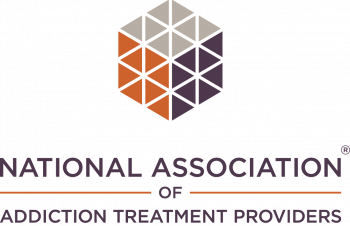If you’re newly sober or your recovery has lasted several years, sobriety may be a daily challenge that you have to face. Even when times are so-called “normal,” it can be hard to be self-aware, thoughtful, and prepared for times of temptation. Now that the world is in the midst of a pandemic, the challenges of staying sober are even tougher.
Stay Connected to Your Support Network
Having a feeling of connection with others is a vital piece of the sobriety plan. Your support network will include your sponsor, your program counselors, friends, and family members who support your decision to be sober. Utilize every resource you have to stay connected, including telephone, text, email, Facetime, Zoom, and even the U.S. postal service. Reach out to someone at least once every day and more if necessary, even if it’s just to say, “I’m feeling okay right now.”
Announce Your Intentions
Let others know of your intentions to stay sober. The more people around you who know your goals, the more likely they’ll be to provide a source of support rather than a source of temptation or triggers. Others will make sure that they don’t do or say things that may make you want to drink. They’ll be more aware of keeping images or comments about alcohol out of your video calls and conversations. This is especially important during the pandemic, as more people may be prone to talk about drinking to relieve stress. Also, announcing your intentions out loud makes a difference in the way you relate to others. When you are truthful and honest with others, you’ll be better able to be truthful and honest with yourself.
Be on the Lookout for New Triggers
As a person in recovery, you always need to be aware of your own triggers. This is both to help you avoid triggers and to help you recognize when an urge to use is likely to occur. But in crisis situations, such as a pandemic, you may develop new triggers. Every day in the news, we’re bombarded with information and the latest updates about cases and deaths and new laws regarding what we can do and what we can’t do. It’s a bit overwhelming for anyone, let alone someone who is trying to better themselves by staying sober. You should congratulate yourself on what you are accomplishing by staying sober. This is something that you’ll be able to build on for the rest of your life. So, when you notice new triggers, either on the news or in online articles, take note of them, but don’t assume you’re getting worse. In fact, the opposite is true; by being more aware of new triggers, you can be assured that you’ll be able to remain vigilant in the years that follow. And more importantly, that nothing will be able to stop you from staying sober.
Embrace Routines
Routines make it easier to remain sober. When you have routines that don’t involve substance use, your mind and body become more accustomed to that condition of being sober. Routines help to keep you from even thinking about doing something you really don’t want to do. In crisis situations, routines are more apt to be disrupted. You may not be commuting to work anymore, or you may be working only part-time and have more free time on your hands. Try to account for most of your free time with routines. Consider exercising at a certain time each day or reaching out to your support system at the same time each day. The more routines you create and stick to, the stronger your will to resist temptations will be.
If you need help now or any time, please don’t hesitate to reach out to our team at TruHealing Gaithersburg for addiction treatment programs that can help with staying sober. You can contact us at (833) 625-0398.









